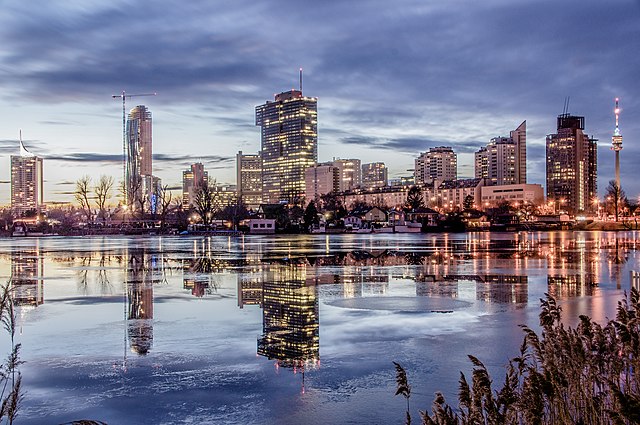
Austria’s main businesses
Austria has a highly developed and diversified economy, with several key sectors contributing significantly to its economic output. The country’s strategic location in Central Europe, strong industrial base, and well-developed infrastructure have made it an attractive hub for international trade and investment. Below are some of the main businesses and sectors driving Austria’s economy:
### 1. **Manufacturing and Industrial Production**
Austria has a strong industrial sector, particularly in manufacturing. The country is known for producing high-quality machinery, industrial equipment, and automotive components. Austrian firms like **Voestalpine** and **AMAG** are global leaders in steel production and aluminum, respectively. The **automotive industry** is another significant contributor, with companies such as **Magna Steyr** involved in producing car components for global brands, including BMW and Mercedes-Benz. Additionally, Austria is a hub for the production of electrical machinery, chemicals, and pharmaceuticals, exporting a wide range of goods worldwide.
### 2. **Tourism**
Tourism is a major industry in Austria, thanks to its picturesque landscapes, historical cities, and cultural attractions. The **Alps** make Austria a premier destination for winter sports such as skiing, while cities like **Vienna**, **Salzburg**, and **Innsbruck** attract millions of tourists interested in history, art, and architecture. Cultural festivals like the **Salzburg Festival** also contribute to Austria’s reputation as a cultural hub. The tourism sector supports a range of businesses, including hotels, restaurants, and transportation services, and provides jobs to a large portion of the population.
### 3. **Banking and Financial Services**
Austria has a highly developed financial sector, with Vienna being a regional financial center. Major banks such as **Raiffeisen Bank International** and **Erste Group Bank** are key players, offering a broad spectrum of financial services including retail and corporate banking, asset management, and insurance. The country’s stable political and economic environment has also made it attractive for foreign financial institutions and investors. Austria’s close ties with Central and Eastern European markets provide additional growth opportunities for its financial sector.
### 4. **Energy and Environmental Technologies**
Austria is known for its commitment to renewable energy, with **hydropower** accounting for a significant share of its electricity production. The country has made substantial investments in **wind energy**, **solar power**, and **biomass**, contributing to its reputation as a leader in green technologies. Austrian companies like **ANDRITZ** specialize in the development of hydropower plants and other renewable energy solutions. The country’s focus on environmental sustainability has also fostered the growth of industries related to energy efficiency and waste management.
### 5. **Agriculture and Food Production**
Although agriculture contributes a smaller percentage to Austria’s GDP compared to other sectors, it remains important, especially in rural areas. Austria is known for its high standards in organic farming, with products such as **dairy**, **meat**, **wine**, and **grains** being central to the sector. The **Austrian wine industry** is internationally recognized, particularly for its **Grüner Veltliner** wines. Austrian food products, known for their quality and sustainability, are also popular exports, contributing to the country’s trade balance.
### 6. **Technology and Innovation**
Austria has a growing technology and innovation sector, with a focus on **biotechnology**, **IT**, and **advanced manufacturing**. The country is home to numerous research institutions, universities, and tech startups, fostering an environment of innovation. The city of Vienna, in particular, has become a hub for startups in fields such as **FinTech**, **AI**, and **healthcare technologies**. Austria’s commitment to R&D spending, which is among the highest in Europe, has enabled these sectors to flourish.
### 7. **Logistics and Transport**
Austria’s strategic location in the heart of Europe makes it a key logistics hub. Its well-developed transport infrastructure, including road, rail, and air networks, facilitates the movement of goods across Europe. Austrian companies such as **ÖBB (Austrian Federal Railways)** and **Austrian Airlines** play crucial roles in the transport of goods and people. Additionally, Austria’s **Danube River** serves as a vital waterway for transporting goods across Central and Eastern Europe.
### Conclusion
Austria’s economy is built on a diverse set of industries, ranging from heavy manufacturing and energy production to tourism and finance. The country’s focus on high-quality production, innovation, and environmental sustainability, combined with its strategic location, makes it a key player in various global markets. Austrian businesses continue to thrive by leveraging the country’s skilled workforce, strong infrastructure, and stable economic environment.



Leave a Reply